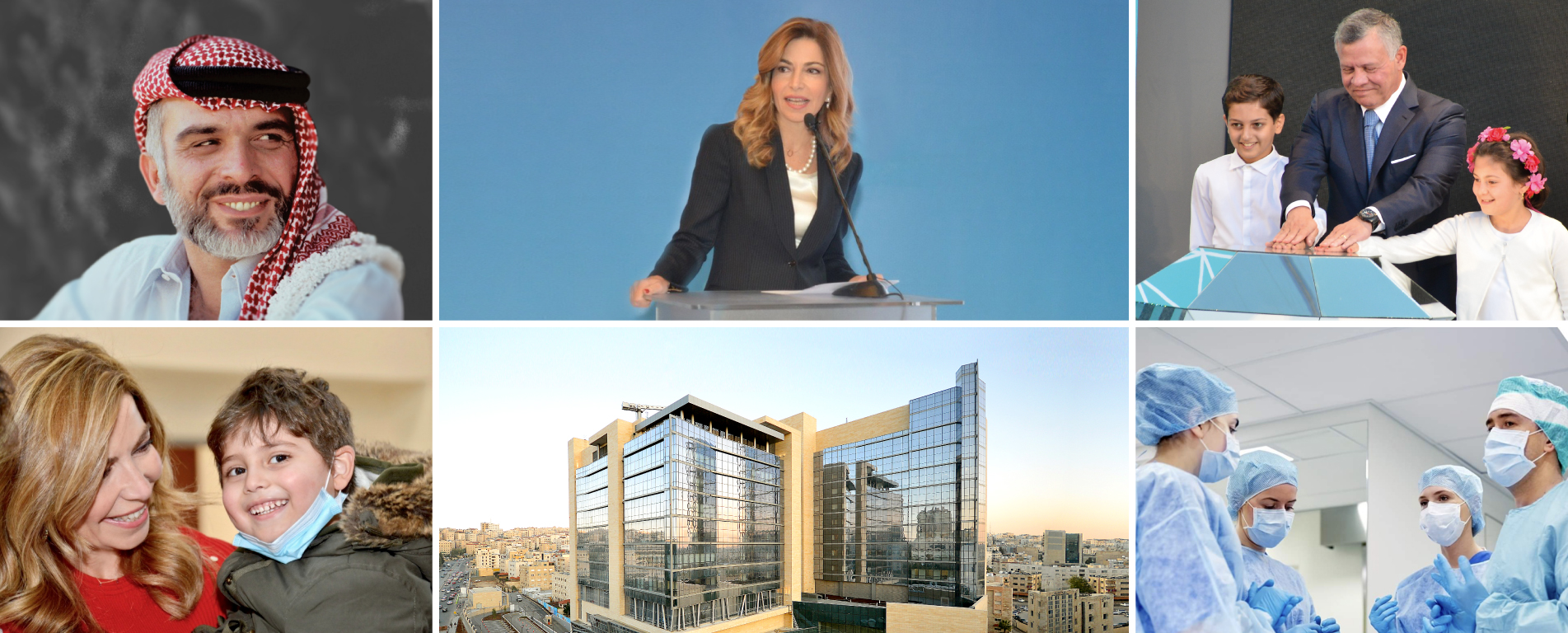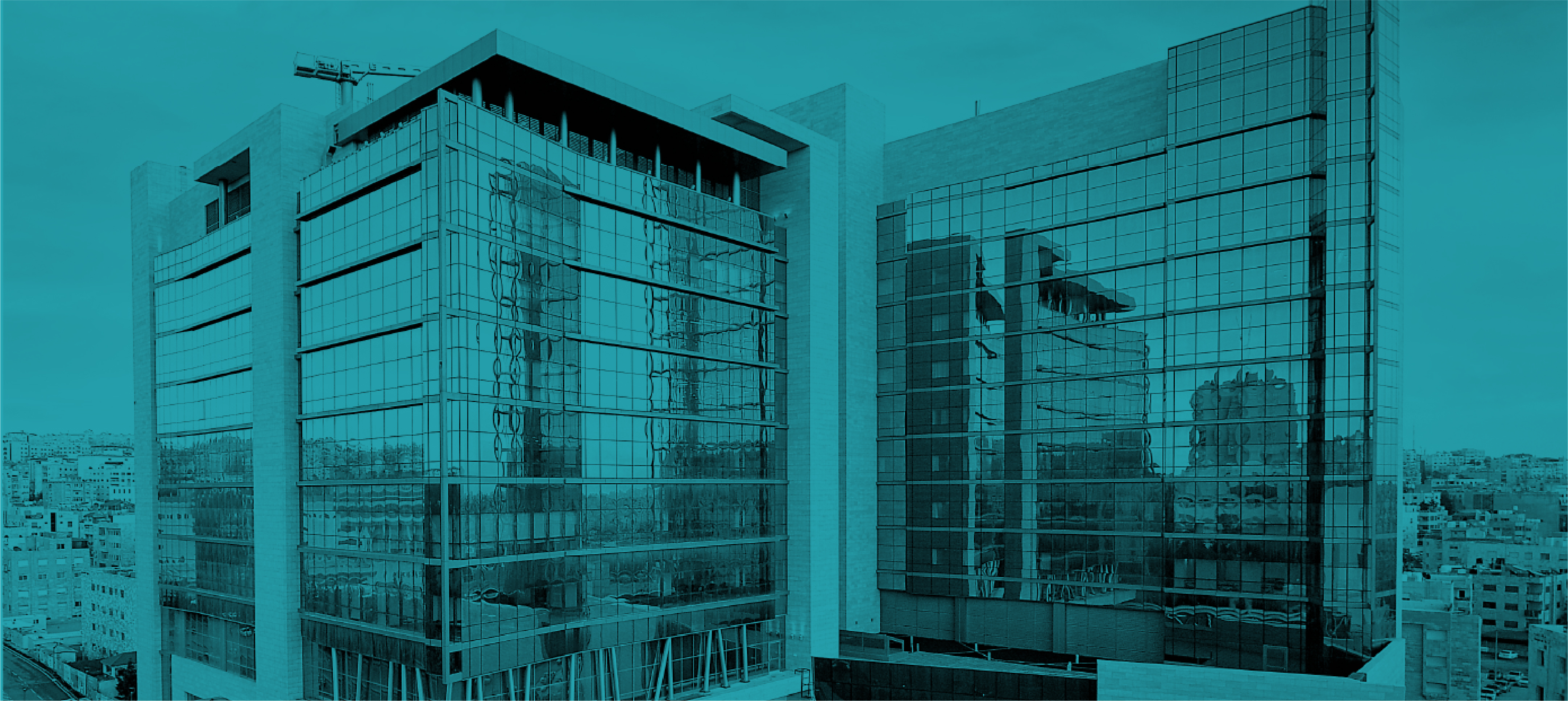The King Hussein Cancer Foundation USA (KHCF USA) is a section 501 (c)(3) charitable organization established in the United States with a mission to support the advancement and treatment of cancer, the care of cancer patients in Jordan and the Middle East and the work of the King Hussein Cancer Foundation and Center. With funds from tax-exempt donations made in the US, many underprivileged individuals and families are able to finance their cancer treatment at Jordan’s King Hussein Cancer Center.
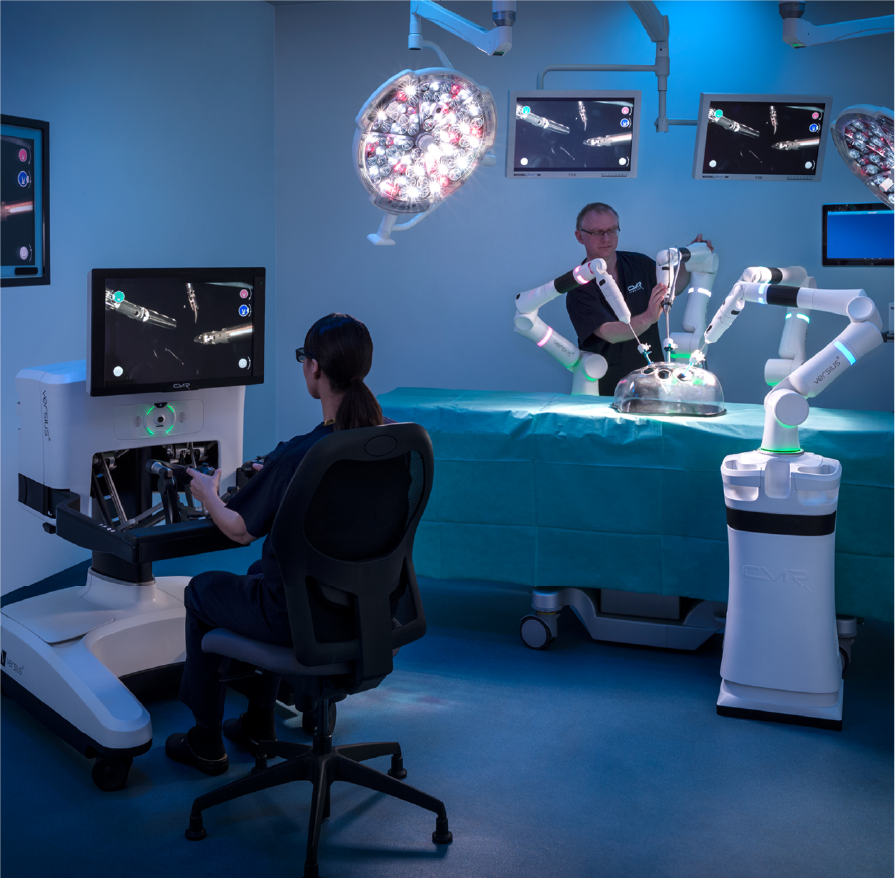
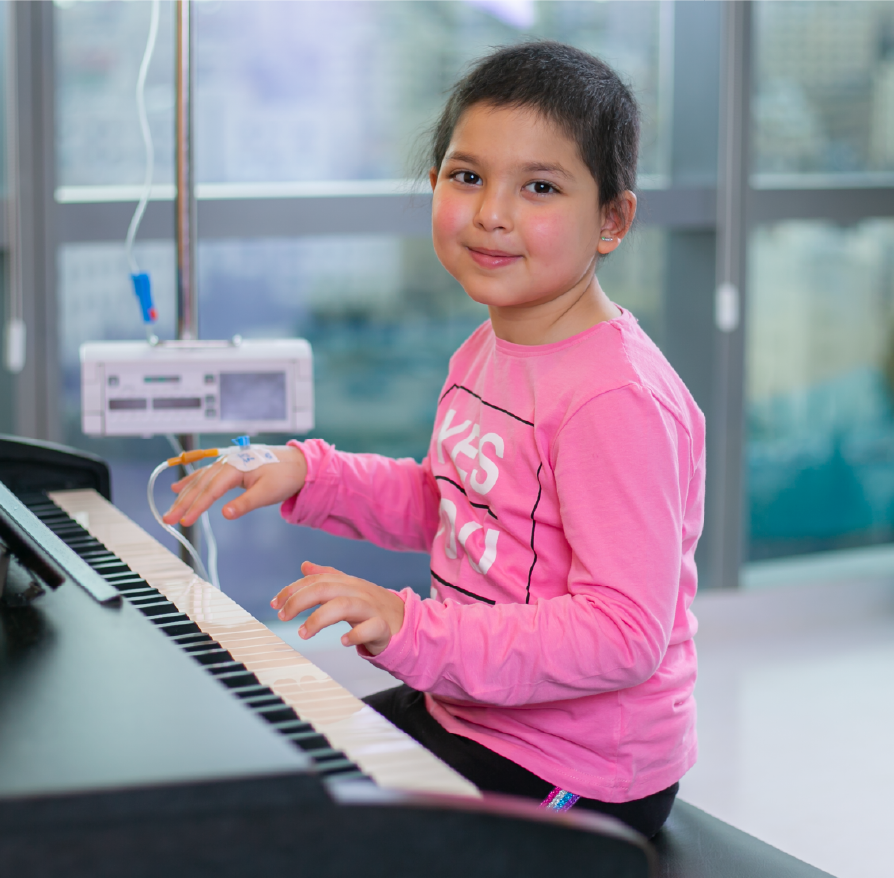
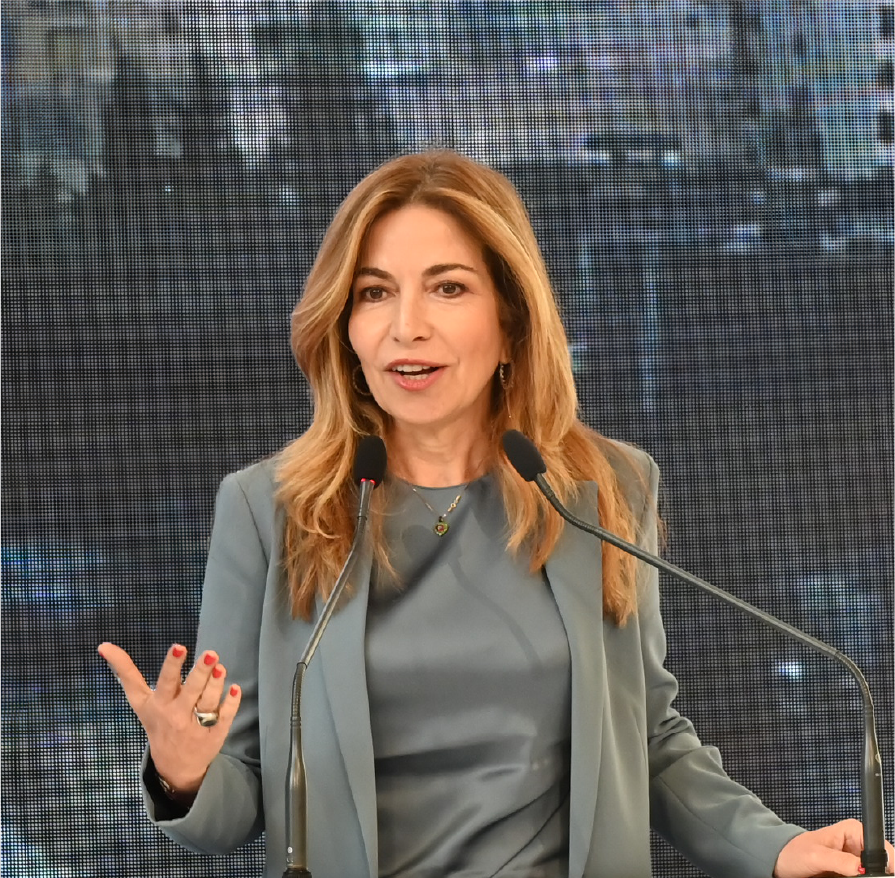
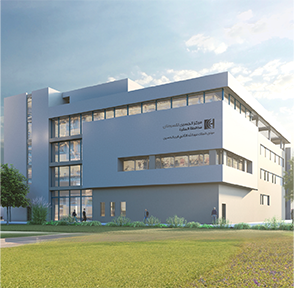
New cases treated annually
Patients treated at KHCC are refugees or have been displaced from their homes
Women provided with free breast imaging services
Patients treated at KHCC
Survivor rate are among pediatric patients
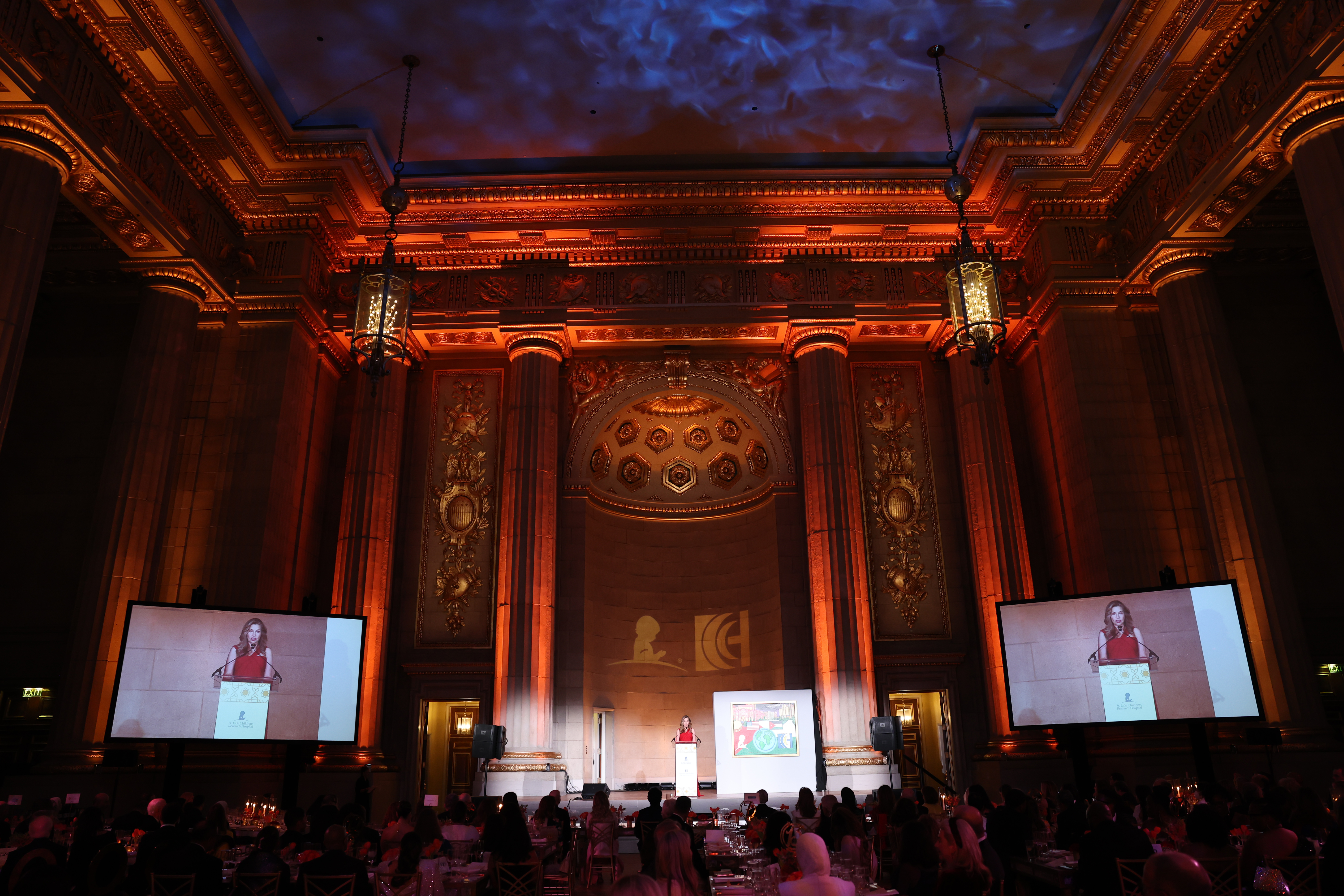
Sep
14
A Global Partnership to End Pediatric Cancer: KHCC-St. Jude Joint Gala
The King Hussein Cancer Center and St. Jude Children’s Research Hospital held a joint gala fundraising event, “A Global Partnership to End Pediatric Cancer” on Saturday, September 14, 2024.
The event was hosted by HRH Princess Ghida Talal, Chairperson of the King Hussein Cancer Foundation (KHCF) and Center (KHCC), and Richard C. Shadyac, Jr., President and CEO of ALSAC.
During her remarks, Princess Ghida said: “Our two institutions, in Memphis and Amman, are bound by a deep and unwavering conviction: that fighting cancer is not a choice. It is a moral obligation.”
Mr. Shadyac stated: “Ours is a partnership rooted in a shared vision and driven by an unwavering dedication to families everywhere.”
Through sponsorships and live and silent auctions, the Joint Gala raised over $3M, with the Stavros Niarchos Foundation’s U.S. Branch and the Embassy of the State of Qatar in Washington D.C. serving as Event Hosts, and The John S. Habib Trust, Boeing, Chevron, Albemarle, and Tiffany & Co. serving as sponsors.
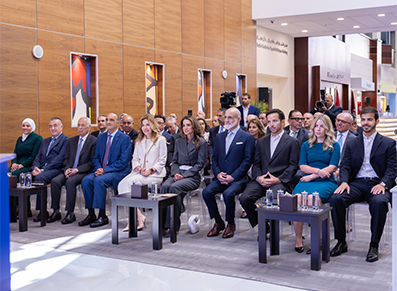
Jul
31
Queen Rania Visits King Hussein Cancer Center and Inaugurates New Radiation Oncology Building
July 31, 2024 Amman - Her Majesty Queen Rania Al Abdullah visited the King Hussein Cancer Center (KHCC) in Amman on Wednesday, on the occasion of the Silver Jubilee of His Majesty King Abdullah II’s accession to the Throne. During her visit, Queen Rania inaugurated KHCC’s new Radiation Oncology building, in the presence of Their Royal Highnesses Prince Talal bin Muhammad, Special Advisor to His Majesty, and Princess Ghida Talal, Chairperson of the King Hussein Cancer Foundation (KHCF) and Center. Covering over 2,700 square meters and featuring state-of-the-art medical equipment, the new facility was established to meet the rising need, increasing the Radiation Oncology Department's monthly capacity from 260 patients to approximately 400. An estimated 60% of KHCC patients require radiotherapy as part of their treatment plan. Princess Ghida Talal explained that, over the past 25 years, the King Hussein Cancer Center has become a cornerstone of cancer care in the region, serving more than 70,000 patients. She also expressed her deepest gratitude to Their Majesties King Abdullah and Queen Rania for their steadfast support of this Jordanian institution. The building’s inauguration was attended by Prince Hussein bin Talal, Prince Muhammad bin Talal, Princess Rajaa bint Talal, Prime Minister Bisher Khasawneh, Royal Court Chief, Yousef Issawi, Minister of Education and Minister of Higher Education and Scientific Research Azmi Mahafzah, Minister of Health Feras Hawari, KHCC CEO and Director General Asem Mansour, KHCF Director General Nisreen Qatamish, and several members of the KHCF/KHCC Board of Trustees. The Queen also toured several KHCC departments, including Jordan's first neurosurgery suite, in which more than 300 operations have been conducted since its opening in 2019. She also visited the Center’s pediatric department, which treats approximately 90 percent of Jordan's pediatric cancer patients. Spanning 108,700 square meters, KHCC receives approximately 7,000 new patients, 14,000 admissions, and 250,000 outpatient visits each year. Its key facilities include Jordan’s first public umbilical cord blood bank, intensive care units for children and adults, diagnostic and therapeutic radiology departments, a cellular therapy and applied genomics department, and a bone marrow transplant program.
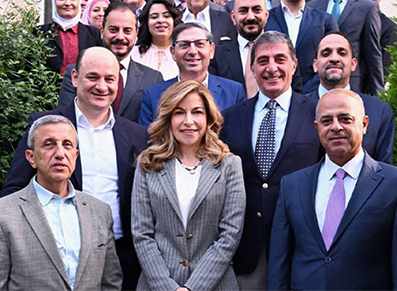
Apr
24
Princess Ghida Talal Launches “Economics of Smoking” Policy Paper
Amman, April 24, 2024 - HRH Princess Ghida Talal, Chairperson of the King Hussein Cancer Foundation (KHCF) and Center (KHCC), launched a new policy paper titled “The Economics of Smoking” which addresses the economic drivers and impacts of tobacco in Jordan during a panel discussion held at the Jordan Economic Forum. The panel discussion included esteemed economists and academics focused on the impact of smoking on the national economy and public health, and was moderated by Dr. Khair Abu Saalik, chairman of the Forum's Board of Directors. During the seminar, Princess Ghida stated, "I address my call to each and every one of us. The time has come for us to take serious and strict steps given the numerous studies and reports that have been written, and the capabilities that already exist. It is our duty to act responsibly and enforce the implementation of Article 47 of the Public Health Law immediately without any delay." Dr. Abu Saalik emphasized that smoking is not only a public health problem but also a significant economic burden that requires continuous, organized efforts to mitigate. He pointed to the paper’s key findings, which highlight the significant financial losses suffered annually by the Jordanian economy due to smoking and which shed a light on the burden it places on the healthcare system. The role of educational frameworks and health awareness in schools and universities as key tools in curbing the spread of smoking among new generations was also discussed, emphasizing the importance of the role that technology can play in monitoring and analyzing smoking trends. In his remarks, Dr. Abu Saalik also stressed the importance of national efforts to combat this menace that threatens the future of Jordan from both health and economic perspectives alike. He further underscored the Forum's commitment to playing a pivotal role in stimulating national dialogue and encouraging policymakers to take serious steps towards addressing the issue of smoking from its roots, given its long-term implications on society and the economy in Jordan. Panelists and participants also reviewed a set of policy recommendations, including expanding awareness campaigns to encompass more age groups, especially youth, and strengthening legislation to combat smoking in public places.
